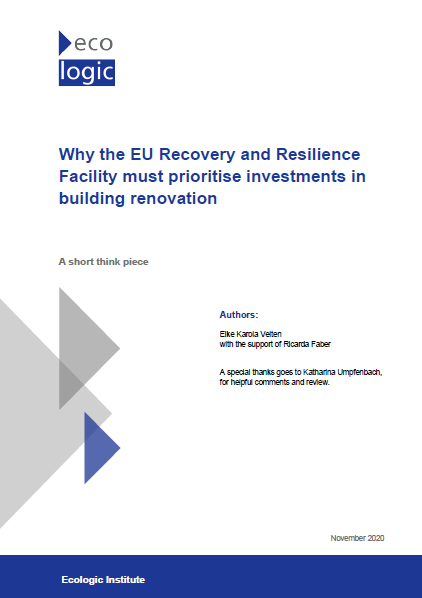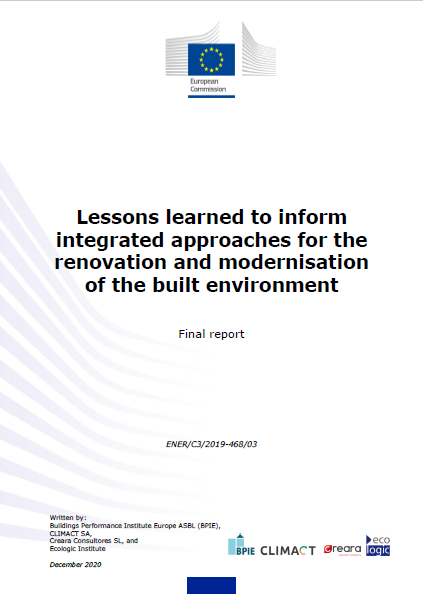Socioeconomic Effects of EU Renovation Wave Expenditure on Low-Income Groups in the EU27
- Publication
- Citation
Koegel, Nora 2022: Socioeconomic effects of EU Renovation Wave expenditure on low-income groups in the EU27. Master Thesis: Vienna University of Economics and Business (WU Wien) Department of Socio-Economics. In: Energy Poverty Advisory Hub. Directorate-General for Energy. European Union.
Buildings are responsible for more than 30% of the EU's greenhouse gas emissions from energy. To increase energy and resource efficiency, the EU Renovation Wave sets the target of doubling renovation rates in the next ten years. The EU also presents the Renovation Wave as a countermeasure against energy poverty, which currently impacts around 34 million EU residents. However, EU-level analyses which connect the technical aspects of the plan with socioeconomic criteria that account for energy poverty remain scarce.
In this paper, Nora Kögel from Ecologic Institute addresses that gap by investigating the distributional effects of reaching the Renovation Wave's 2030 goals in the EU27 countries, based on data from Invert/EE-Lab and Eurostat. It assesses changes in heating expenditure as well as renovation investment needs relative to the total expenditure of private households. The analysis relies on four price scenarios and two renovation scenarios. Quantitative findings are further contextualized with three examples: Austria, Spain, and Romania. The results indicate that for the lowest income quintile, the heating cost burdens are disproportionately high compared to higher-income groups. However, these burdens can be alleviated if final energy demand is reduced through renovation measures targeting energy efficiency improvements and deployment of renewables.
This study underscores the importance of considering distributional effects when designing and evaluating renovation policies, before concluding with an overview of data gaps and further research recommendations.
This is a thesis submitted in partial requirements of the degree of Master of Science "Socio-Ecological Economics and Policy" at Vienna University of Economics and Business (WU Wien), Department of Socio-Economics.



